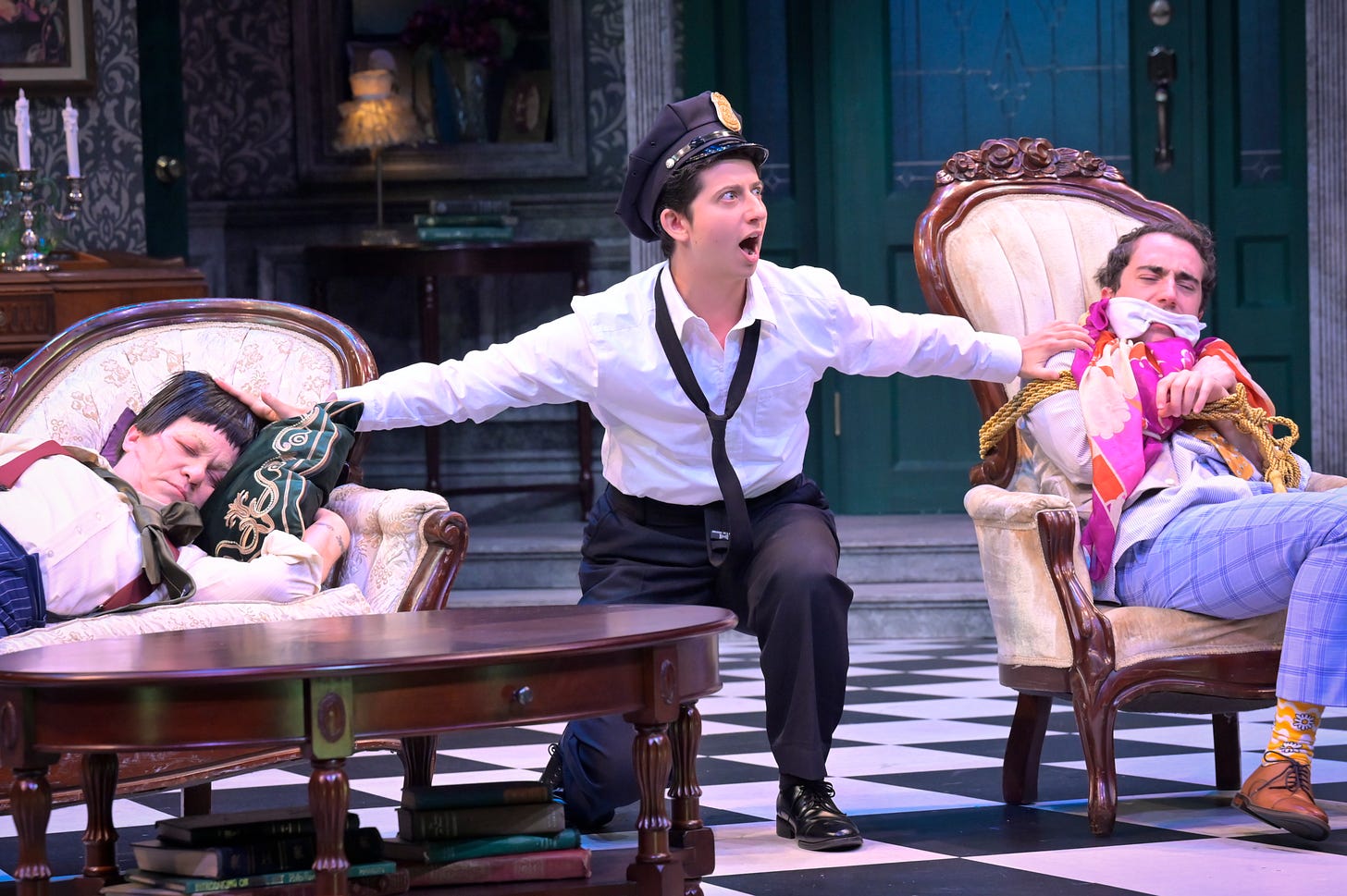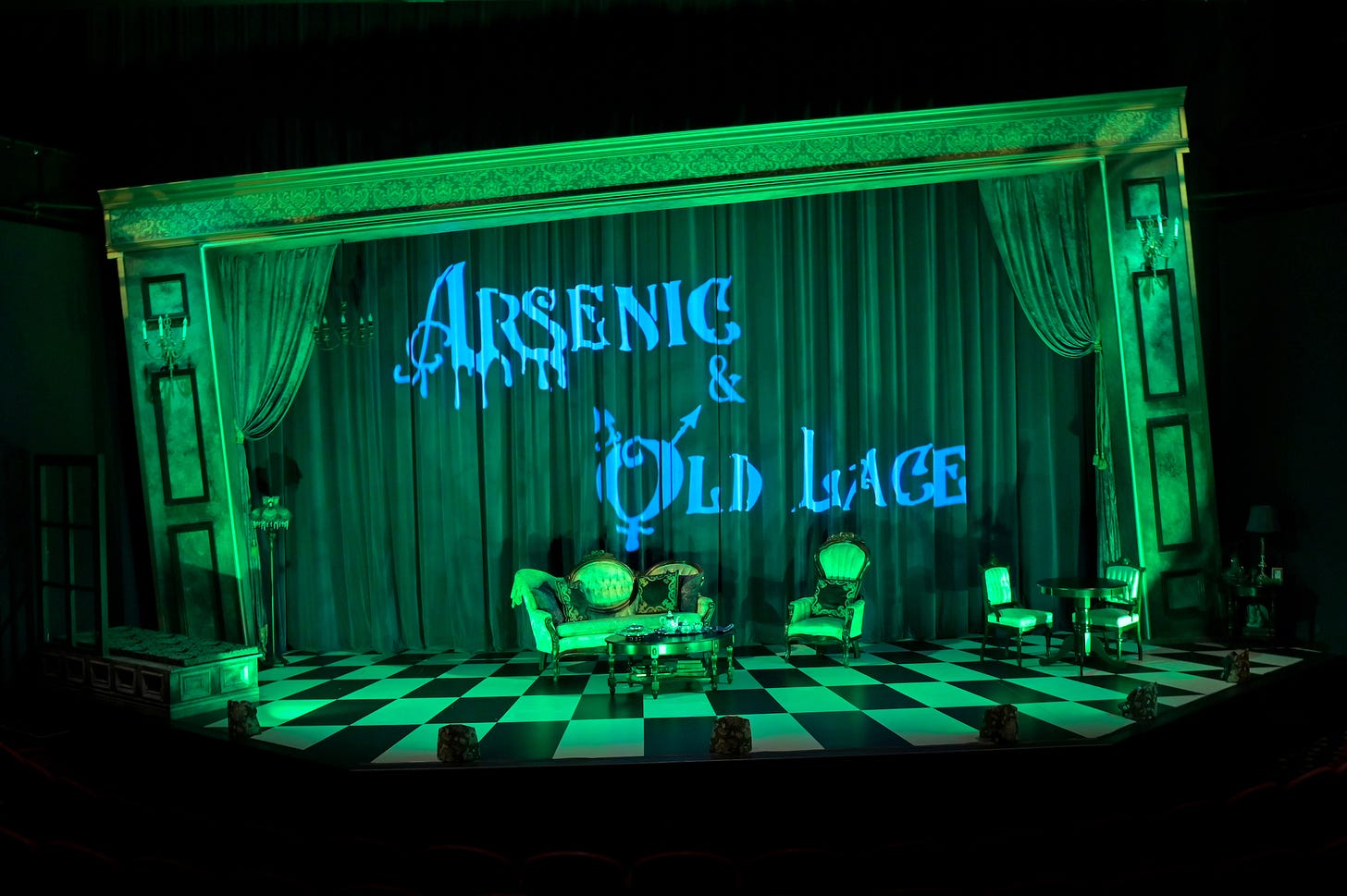Do you all remember the Magic Tree House books (by Mary Pope Osborn)? They were probably the strongest literary pillar of my childhood. In a certain handful of them, Jack and Annie have to travel around the space-time continuum collecting different types of magic for Merlin and Morgan le Fay. In Stage Fright on a Summer Night (#25), the two siblings travel to Shakespeare’s day and discover the magic of theatre.
The fact that theatre was a type of magic was no shock to me reading that at the time, for I was well-acquainted with it. I was lucky enough to have a childhood infused with the magic of theatre. But now, with some distance from my childhood’s rose-colored glasses, it’s easy to forget what that magic is capable of.
Before last month, I hadn’t been in a play for over five years (if, for now, we discount those that were improvised or performed over Zoom which are both valuable but distinctly different experiences), and it was a highlight of my life to work and play as part of the cast of Arsenic and Old Lace with Center Rep, the resident professional theatre company of the Lesher Center for the Arts in Walnut Creek, CA.
The director, Matt Morrow, conceived a gloriously queer revival of the classic and filled the company (cast and crew) with amazingly kind, generous, talented, and dedicated people with whom I was so grateful to be able to spend my time.
Arsenic and Old Lace is a farce. It is silly and colorful and it’s wonderful for a (long) evening of laughs. There’s not a whole lot else to it. The script itself is unlikely to drastically change the world, but that’s where the magic of theatre comes in.

“Theatre,” by itself, does not describe a particular art or craft. It doesn’t actually exist. “Theatre” is the word we use to describe the magic that happens when Acting and Playwriting combine with Architecture and Fashion Design and Lighting Art and Construction and Painting and Textile Work and Electrical Work. Theatre is no one person’s art. It is what happens when a community decides to make art together. It is in the making that people are changed, that people learn and grow. Then, audience after audience after audience not only get to bask in the warmth of that community, but they get to become part of it. The community grows.
I think this particular aspect of the magic is the reason Theatre has been the underdog of the world throughout most of our history. Power knows that its best strategy to keep people in line is to keep them divided, and Theatre’s very existence is a continual protest of that division. Like all good things, it can be (and sometimes has been) utilized poorly, to the detriment of the world and itself; still, at its philosophical core, it has this power.
To be in theatre one must decide that they don’t mind being silly for the benefit of others, that they are willing to understand people different from themselves to the extent that they can portray that person’s emotions, that they are not only willing but want to stand in front of as many people as possible and say “Join me! Laugh with me! Cry with me! I will bare my soul for you, because you are part of my community, and I trust you to hold it with care.” The more people who do that, the more that trust is warranted, and the more communities simultaneously grow and tighten, encompassing more people and bringing them all closer.
That can be a very dangerous thing. That is the thrilling and tantalizing magic of Theatre. It says, “Come for an evening and share some laughs,” while slowly, play by play, community by community, it changes the world.






Terrific essay, Addam. Love the photo of you as the cop.